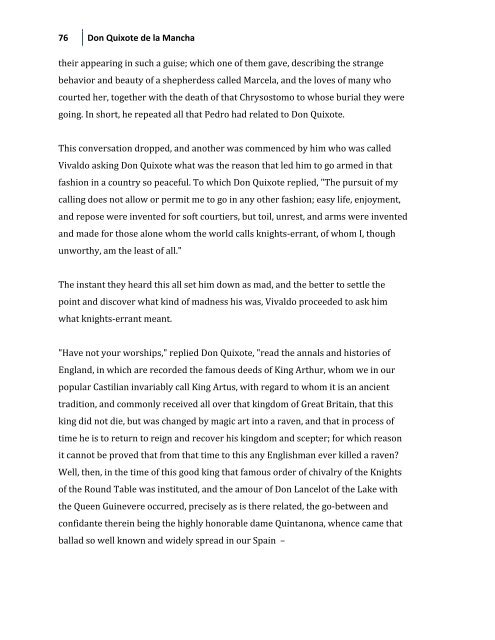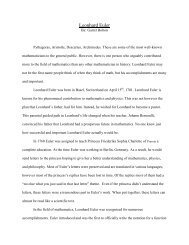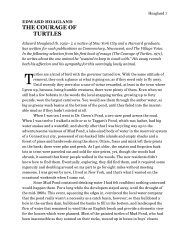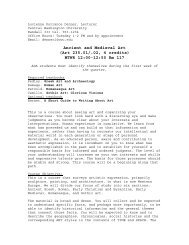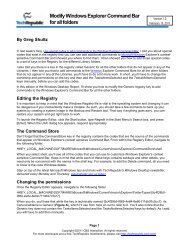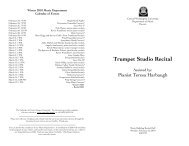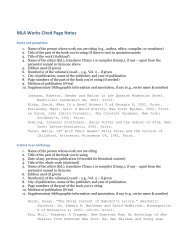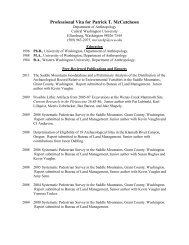The Ingenious Gentleman Don Quixote de la Mancha
The Ingenious Gentleman Don Quixote de la Mancha
The Ingenious Gentleman Don Quixote de la Mancha
You also want an ePaper? Increase the reach of your titles
YUMPU automatically turns print PDFs into web optimized ePapers that Google loves.
76 <strong>Don</strong> <strong>Quixote</strong> <strong>de</strong> <strong>la</strong> <strong>Mancha</strong> <br />
<br />
their appearing in such a guise; which one of them gave, <strong>de</strong>scribing the strange <br />
behavior and beauty of a shepher<strong>de</strong>ss called Marce<strong>la</strong>, and the loves of many who <br />
courted her, together with the <strong>de</strong>ath of that Chrysostomo to whose burial they were <br />
going. In short, he repeated all that Pedro had re<strong>la</strong>ted to <strong>Don</strong> <strong>Quixote</strong>. <br />
<br />
This conversation dropped, and another was commenced by him who was called <br />
Vivaldo asking <strong>Don</strong> <strong>Quixote</strong> what was the reason that led him to go armed in that <br />
fashion in a country so peaceful. To which <strong>Don</strong> <strong>Quixote</strong> replied, "<strong>The</strong> pursuit of my <br />
calling does not allow or permit me to go in any other fashion; easy life, enjoyment, <br />
and repose were invented for soft courtiers, but toil, unrest, and arms were invented <br />
and ma<strong>de</strong> for those alone whom the world calls knights‐errant, of whom I, though <br />
unworthy, am the least of all." <br />
<br />
<strong>The</strong> instant they heard this all set him down as mad, and the better to settle the <br />
point and discover what kind of madness his was, Vivaldo procee<strong>de</strong>d to ask him <br />
what knights‐errant meant. <br />
<br />
"Have not your worships," replied <strong>Don</strong> <strong>Quixote</strong>, "read the annals and histories of <br />
Eng<strong>la</strong>nd, in which are recor<strong>de</strong>d the famous <strong>de</strong>eds of King Arthur, whom we in our <br />
popu<strong>la</strong>r Castilian invariably call King Artus, with regard to whom it is an ancient <br />
tradition, and commonly received all over that kingdom of Great Britain, that this <br />
king did not die, but was changed by magic art into a raven, and that in process of <br />
time he is to return to reign and recover his kingdom and scepter; for which reason <br />
it cannot be proved that from that time to this any Englishman ever killed a raven? <br />
Well, then, in the time of this good king that famous or<strong>de</strong>r of chivalry of the Knights <br />
of the Round Table was instituted, and the amour of <strong>Don</strong> Lancelot of the Lake with <br />
the Queen Guinevere occurred, precisely as is there re<strong>la</strong>ted, the go‐between and <br />
confidante therein being the highly honorable dame Quintanona, whence came that <br />
bal<strong>la</strong>d so well known and wi<strong>de</strong>ly spread in our Spain – <br />
<br />


